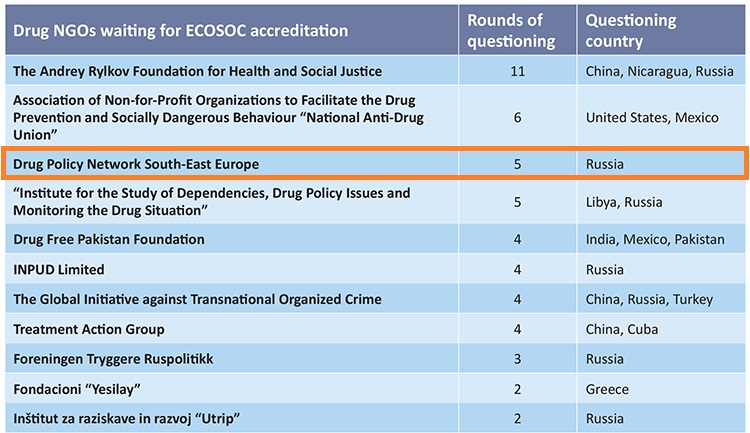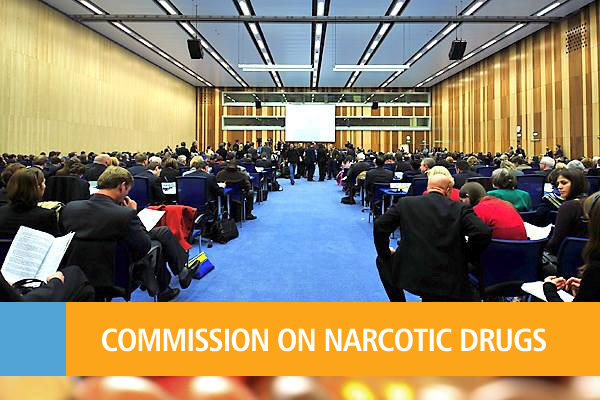The Drug Policy Network South East Europe applied for the ECOSOC membership in 2018. Since then, our application was 5 times differed with occasional questions of not a great importance, on which we provided accurate answers. Why this happens? The recent study prepared by the International Drug Policy Consortium explains.
Here is the extract from the IDPC webpage presenting the analysis of this phenomenon:
“Decision-making across the board, on development, on security, on social affairs, is more effective and legitimate when people from different backgrounds are able to contribute. Meaningful participation of civil society in international processes and bodies, including in the UN, relies on free and vibrant democratic spaces with effective participation channels for diverse groups at the national level. This, in turn, requires respect for freedom of expression and access to information online and offline, freedom of association and physical security for those who speak up and assemble peacefully”.
The United Nations (UN) has long recognised the role of civil society as a key component of effective decision-making at all levels of governance. Yet, civil society continues to face significant barriers in accessing the decision-making table, including at the UN itself. One of these obstacles is the inability for many NGOs to obtain accreditation from the Economic and Social Council (ECOSOC), which would enable them to attend and engage in key UN policy-making fora such as the UN General Assembly, the UN Human Rights Council, and the UN Commission on Narcotic Drugs.
According to the International Service for Human Rights (ISHR), no less than 41 NGOs have seen their application for ECOSOC status deferred for over four years. Similarly, research by the International Drug Policy Consortium (IDPC), which will be presented here, has shown that NGOs working on drug-related issues are facing increasing difficulties in obtaining ECOSOC status. This is mainly due to obstructive practices within the UN Committee on Non-Governmental Organizations (thereafter called ‘Committee on NGOs’ or ‘Committee’), which is used by some countries as a tool to limit NGO participation in UN policymaking processes.
In this advocacy note, IDPC presents key research on how the Committee on NGOs has effectively restricted civic space for drug NGOs wishing to engage in UN proceedings, and offers key recommendations for member states as they are preparing to elect new members of the Committee on NGOs in April 2022.
 You can access the report following this link>>>.
You can access the report following this link>>>.



